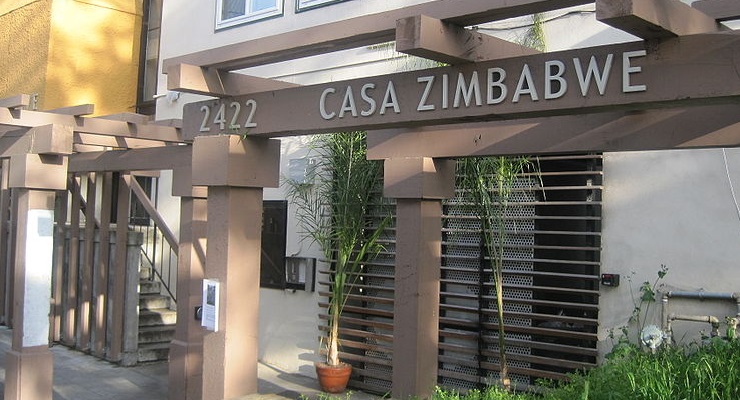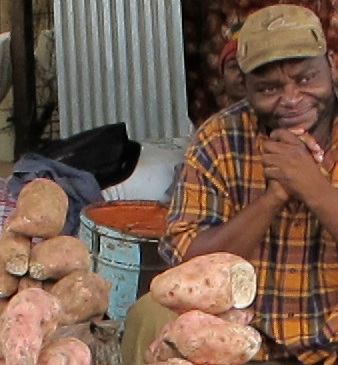
It is held that strengthening of democratic processes and institutions is the common responsibility of governments, the electorate, civil society and organized political forces. Conducting of periodic and genuine elections are also a necessary and indispensable element of sustained efforts to protect the rights and interests of those governed as such the right of everyone to take part in the government of his or her country is a crucial factor in the effective enjoyment by all of human rights and fundamental freedoms.
Although with some restrictions, some African countries follow their diaspora citizens with a ballot box for them to vote usually for the president. This has been the case in several African countries such as Mozambique, Senegal, Mali, Benin and Guinea and Chad. This undoubtedly reinvented their ties with their countries of origin. In addition to its symbolic value, the vote, as a fundamental expression of democracy, has become a means of reaffirming and reinforcing citizenship. This major change has brought about a feeling of greater closeness to their “native land” ( Laloupo 2015). Diaspora vote is not specific to Africa. They have also been observed in such European countries such as United Kingdom, Australia and Canada.
However, in Zimbabwe the issue of diaspora vote has been contagious since the early 2000’s. In 2006 the Supreme Court ruled that voting was not fundamental right. Subsequent court appeals by diaspora residence in the following years failed to shake the 2006 judgment with the latest application in 2013 just before the general elections where the Constitutional Court acceded to the government’s position that it was not able to fund the diaspora vote meaning those who wanted to exercise their electoral right were supposed to travel back to Zimbabwe to vote.
The coming in of the new Constitution in 2013 changed the whole matrix with section 155 stating that voting is a fundamental right to enjoyed by every eligible voter. This has meant that the government should carry the ballot box to Zimbabweans wherever there are in the diaspora be it in South Africa, UK, Australia, Canada and the United States among other countries. Sadly, the Zimbabwe Electoral Commission (Zec) and the government are still developing cold feet stating the usual rhetoric hidden behind the veneer of resource shortages, as well as lack of information on the whereabouts of citizens that are in the diaspora. This is because of a lack of political will on the part of the government that organizes elections and processes that will ensure the fulfillment of the right to vote.

In my view, the narrative concerning diaspora vote from government is nothing short of outrageous, selfishness, greed and unbridled individualism which have become the dominant threads in Zimbabwean politics.
Without being malicious, let’s consider this for a moment. Restricting diaspora vote erases the fundamental virtues of the Constitution. It may allow for the ruling party to yield absolute power through selecting voters, thereby subverting the rights of the diaspora residents. Limiting the number of people who should turn up for any general election is not the duty of government and is unconstitutional.All citizens must be accorded equal opportunity to vote. For instance during the 2013 general elections, about 3.5 million voters casted their ballot against a possible 6.5 million registered voters even without empirical evidence no doubt some of these who failed vote where diaspora citizens.
Zimbabwe can only prosper in all aspects of development if the electorate is given a chance to express his/her choice. This can act as a powerful catalyst for better governance and socio-economic development. This can come through inclusion of diaspora in the voting matrix. If democracy is the will of the people, then diaspora vote would be essence of democracy, then they should be allowed to exercise their right to vote. Why should the diaspora be limited in their power to decide on the governance of their country?
The aspects of Constitutional law and electoral law should not be held hostage to the supposition of the ruling party or any notion of unconstitutional thinking. If government is not made to account by all, we will continue to witness an increase in unemployment, corruption, intimidation and very poor living standards.
As noted above, diaspora vote is a non-negotiable right. The Constitution on section 155 is unequivocally clear on the rights of all citizens to vote. In 2013 Gabriel Shumba leader of Zimbabwe Exiles Forum and others versus Zimbabwe also approached the African Commission on Human and People’s Rights in Banjul (The Gambia) which granted them a provisional order allowing diaspora vote.
Besides being Zimbabwean citizens, the diaspora play a pivotal role in the development of the country. For instance, in 2016 the Reserve Bank of Zimbabwe (RBZ) noted that the diaspora accounted for over US$700 million in direct remittance. Add this to the money they spend whenever they return home for holiday. Beyond remittances to support relatives and holiday spending the Zimbabwean citizens abroad could contribute through investment in productive sector that support economic growth and job creation and can further be tapped to contribute to policy dialogue as well as into the transfer of knowledge and skills. Some countries like Ghana have even gone beyond tapping into diaspora remittances and now include their citizens living abroad in commissions and boards of state owned institutions.
References
- Laloupo, F. 2015.The African diaspora and the electoral process: what has changed? OSISA 08 April
- Jambawo, K. 2017. Zimbabwe’s diaspora UK continue to push for right to vote. The Zimbabwean 18 May
Leave a Reply